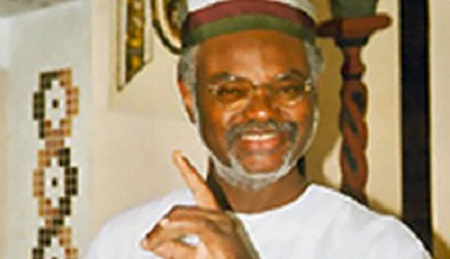Few names in Lagos politics evoke as much reflection and sorrow as that of Engr. Anthony Olufunsho Williams, popularly known as Funsho Williams. His life journey—from a humble student in Ebute-Metta to a top civil servant, businessman, and formidable political figure—was marked by excellence, ambition, and ultimately, tragedy.
Early Life and Education
Funsho Williams was born in 1948. He attended St. Paul’s Catholic School, Ebute-Metta, and later St. Gregory’s College, Lagos, one of the most prestigious secondary schools in Nigeria at the time.
In 1968, he gained admission into the University of Lagos, where he earned a degree in Civil Engineering. Determined to deepen his knowledge, he proceeded to the New Jersey Institute of Technology, USA, for a Master’s degree in Engineering.
Career in Civil Service
Upon returning to Nigeria in 1974, Williams joined the Lagos State Civil Service. For the next 17 years, he played a pivotal role in shaping the physical development of Lagos, Nigeria’s commercial capital.
By the time he rose to the position of Permanent Secretary in the Ministry of Works, Funsho Williams had overseen the construction of nearly 70% of the roads and bridges in Lagos State. His work contributed to the modernization of Lagos, providing critical infrastructure for its growing population and booming economy.
Williams left the civil service in 1991, briefly ventured into private business, but soon returned to public service as a Commissioner under the military administration of Colonel Olagunsoye Oyinlola.
Entry into Politics
Frustrated by the limitations of public service, Williams turned to politics in the mid-1990s, seeking a platform to influence policy rather than just execute it.
He first joined the United Nigeria Congress Party (UNCP) during General Sani Abacha’s regime.
Following Abacha’s death, he moved to the Alliance for Democracy (AD).
Eventually, he crossed over to the People’s Democratic Party (PDP), which won the 2003 national elections under President Olusegun Obasanjo.
Twice, he contested the Lagos State governorship elections but was unsuccessful. Still, he remained undeterred, building grassroots support and gaining recognition as a serious contender who could finally challenge the AD’s dominance in Lagos.
The 2007 Ambition
By 2006, Williams was widely tipped to emerge as the PDP gubernatorial candidate for Lagos State. His candidacy represented the best chance the PDP had at breaking the stronghold of the opposition in Lagos.
Many saw him as the man who could transform Lagos, given his technocratic experience and proven record in public works.
Assassination
Tragically, his dream was cut short. On July 27, 2006, Funsho Williams was found dead in his Dolphin Estate residence in Ikoyi, Lagos.
According to forensic evidence presented in court:
His hands were bound, and he was discovered lying face down in a pool of blood.
He had been stabbed and showed signs of a violent struggle.
The cause of death was asphyxia (manual strangulation), compounded by knife wounds sustained while resisting his attackers.
The violent killing shocked the nation. His assassination was widely interpreted as politically motivated, linked to the fierce battles over the Lagos governorship race within the PDP.
Two arrests were made, including his campaign manager and former Minister of Works, Senator Adeseye Ogunlewe, but no conviction was ever secured.
Burial and Legacy
Funsho Williams was laid to rest at the Victoria Court Cemetery, Lagos, survived by his wife, Hilda, and their four children.
Today, his name lives on through the Funsho Williams Avenue (formerly Western Avenue) in Surulere, Lagos. For many Lagosians, his memory symbolizes both the promise of visionary leadership and the dangers of Nigeria’s volatile political culture.
Funsho Williams’ story is not just about politics, but about dreams, service, and sacrifice. He was a civil servant who became a politician, a builder of bridges and roads who also wanted to build a stronger Lagos.
His assassination remains one of Nigeria’s most high-profile unresolved political murders, leaving behind the haunting question: What would Lagos have become if Funsho Williams had lived to govern?
FOLLOW US ON:
FACEBOOK
TWITTER
PINTEREST
TIKTOK
YOUTUBE
LINKEDIN
TUMBLR
INSTAGRAM































